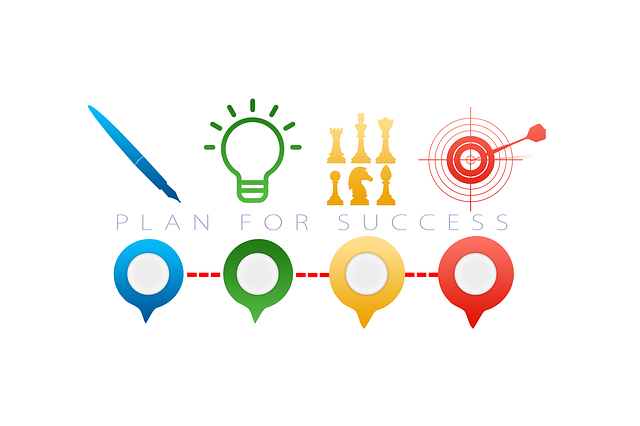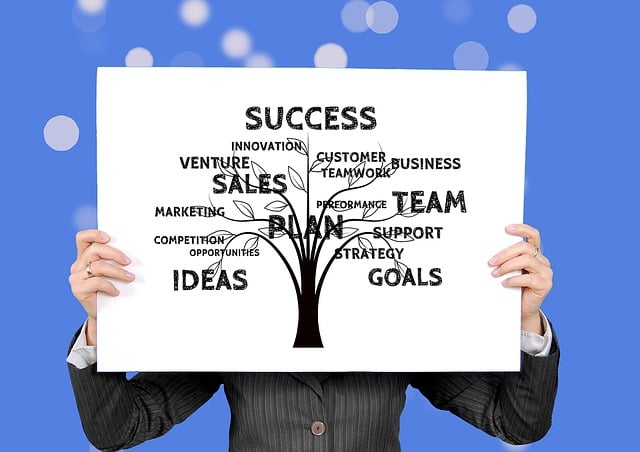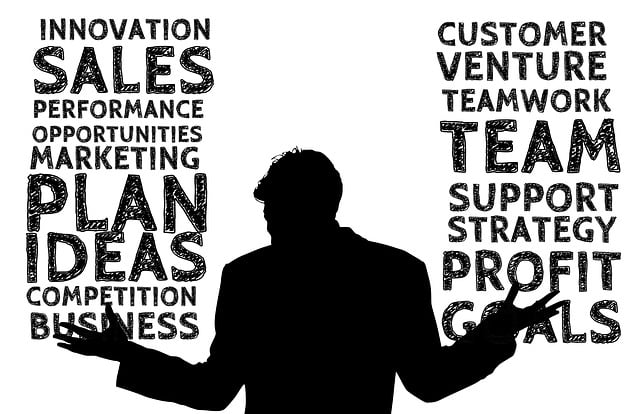Gearing up for a sales job interview and wondering what to expect? Top sales interview questions can make or break your chances of landing that coveted sales position. Are you ready to tackle the most challenging questions hiring managers might throw your way? Preparing for these questions can help you showcase your sales skills, experience, and readiness to join a high-performing sales team. Let’s check our list the essential questions and strategies to help you ace your next sales interview.
Behavioral Sales Interview Questions
Behavioral sales interview questions are crucial because they help hiring managers understand how you’ve handled situations in the past, which is often a good predictor of future behavior. They reveal your problem-solving skills, adaptability, and how you fit into a company’s culture.

These questions also give insight into your self-awareness and ability to reflect on your personal and professional growth. For sales professionals, answering behavioral questions effectively demonstrates your sales process, customer success stories, and ability to achieve sales targets.
Ultimately, these questions help identify if you’re the right person to help drive the company’s sales strategy forward.
1. Describe a time when you successfully handled a difficult customer.
This question aims to assess your problem-solving skills and how you handle pressure during sales calls. To tackle this question, describe the situation briefly, focus on the actions you took to resolve the issue, and highlight the positive outcome.
Emphasize your ability to stay calm and professional, demonstrating your commitment to customer satisfaction and success.
2. Tell me about a time when you exceeded your sales targets.
Here, the interviewer wants to gauge your ability to achieve and surpass sales goals. Explain the strategies and techniques you used to exceed your targets, providing specific examples and key performance indicators.
Showcase your determination and drive, emphasizing any creative approaches or sales tools that contributed to your success. This reflects your proactive nature and results-oriented mindset.
3. Can you give an example of how you handled a failed sale?
This question tests your resilience and ability to learn from past experiences. Describe a specific instance, focusing on what went wrong and what you learned from the experience.
Highlight how you applied this knowledge to future sales efforts to improve your performance. This demonstrates your ability to turn setbacks into valuable learning opportunities.
4. Describe a situation where you had to work with a team to close a sale.
Sales teams rely on collaboration to achieve their goals, and this question assesses your teamwork and leadership skills. Share an example that showcases your ability to work effectively with others, detailing your role in the process and the outcome.
Emphasize your communication skills and how you leveraged the strengths of your team members to achieve a successful sale.
5. Tell me about a time when you had to quickly adapt to changes in the sales process.
The ability to adapt is crucial in sales, where industry trends and company strategies can shift rapidly. Describe a scenario where you had to pivot your approach, explaining the changes in the sales process and how you adjusted.
Focus on your flexibility and willingness to embrace new sales techniques or tools, showing that you can thrive in dynamic environments.

6. How do you stay motivated during challenging sales cycles?
Sales cycles can be lengthy and demanding, and this question explores your motivation and persistence. Discuss the strategies you use to stay motivated, such as setting personal goals, celebrating small victories, or seeking inspiration from successful sales leaders.
Highlight your resilience and commitment to maintaining a positive attitude even during tough times.
7. Can you provide an example of how you set and achieved a personal sales goal?
This question is designed to understand your goal-setting process and self-discipline. Share a specific goal you set for yourself, the steps you took to achieve it, and the outcome.
Emphasize your ability to plan, execute, and monitor your progress, demonstrating your drive for professional development and achievement.
8. Describe a time when you had to learn a new sales software or tool quickly.
Sales roles often require proficiency with various sales tools and software. Discuss a situation where you had to quickly learn and adapt to a new tool, detailing the steps you took to become proficient. Highlight your ability to embrace new technology and integrate it into your sales process effectively.
9. How do you handle objections during a sales call?
Handling objections is a critical skill in sales. Describe your approach to managing objections, focusing on listening to the customer’s concerns, empathizing, and providing solutions.
Show that you can turn objections into opportunities to strengthen your sales pitch and close deals.
10. Can you talk about a time when you improved a sales process at your last company?
This question assesses your initiative and impact on sales efficiency. Share an example of a sales process you identified as needing improvement, the changes you implemented, and the results.
Highlight your ability to analyze, innovate, and contribute to the overall success of the sales team.
Situational Sales Interview Questions
Situational questions are essential because they help hiring managers understand how you would react in specific, often challenging, scenarios. These questions test your problem-solving skills, adaptability, and how well you can think on your feet.

For sales professionals, answering situational questions effectively demonstrates your ability to handle the dynamic nature of sales processes and meet sales quotas. These questions also provide insight into your strategic thinking and decision-making abilities in real-world sales scenarios.
Ultimately, situational questions help identify if you can thrive in the company’s industry and sales culture.
1. How would you handle a situation where a potential client keeps stalling on making a decision?
This question assesses your persistence and ability to manage the sales cycle effectively. To tackle it, describe your approach to identifying the client’s pain points and concerns.
Emphasize your strategy for maintaining engagement, providing additional value, and creating a sense of urgency without being pushy. Highlight your ability to balance persistence with patience to close the deal successfully.
2. Imagine a competitor is offering a similar product at a lower price. How would you persuade a prospect to choose your product?
Here, the interviewer wants to gauge your ability to differentiate your company’s products from competitors. Explain how you would highlight your product’s unique features, benefits, and overall value.
Discuss your strategy for emphasizing the superior customer support, reliability, or other advantages that justify the higher price. This shows your capability to handle competitive sales environments.
3. Describe a situation where you had to meet an aggressive sales quota in a short time frame.
This question tests your ability to perform under pressure and achieve ambitious sales targets. Share a specific example, detailing the strategies and sales techniques you used to meet the quota.
Highlight your time management skills, focus on prioritizing high-potential leads, and use of sales tools to optimize your efforts. Demonstrate your resilience and determination to succeed.
4. How would you approach a cold call to a potential client who has shown no previous interest in your product?
Cold calls and cold emails are a common challenge in sales positions, and this question evaluates your approach to initiating contact with prospects. Describe your method for researching the prospect beforehand to personalize the call.
Emphasize your communication skills, ability to quickly establish rapport, and strategy for highlighting the product’s relevance to the prospect’s needs. This shows your preparedness and confidence in cold calling.
5. If a client voices a concern about a negative review they found online, how would you address it?
This question assesses your ability to handle objections and build trust with clients. Explain your approach to acknowledging the client’s concern and providing a balanced perspective.
Discuss your strategy for sharing positive customer experiences and reinforcing the product’s value. Highlight your commitment to transparency and customer satisfaction to ease the client’s worries.

6. What would you do if you noticed a significant drop in your sales metrics over the last quarter?
Sales metrics are crucial indicators of performance, and this question tests your analytical and problem-solving skills. Describe your approach to diagnosing the root cause of the decline, whether it’s related to market trends, the sales process, or other factors.
Explain the steps you would take to address the issue, such as revising your sales strategies or seeking feedback from sales managers. This demonstrates your proactive and data-driven mindset.
7. How would you manage a situation where two key team members disagree on the best approach to a sale?
Team dynamics are vital in many sales teams, and this question evaluates your conflict resolution skills. Describe your approach to facilitating a constructive discussion between the team members to understand their perspectives.
Emphasize your role in finding a compromise or synthesizing the best aspects of both approaches to achieve the sales goal. Highlight your ability to foster collaboration and maintain a positive team environment.
8. Imagine you have a prospect who is interested but hesitant due to budget constraints. How would you proceed?
Budget constraints are common objections in sales roles, and this question tests your ability to handle them tactfully. Discuss your approach to understanding the prospect’s budget limitations and exploring flexible payment options or scalable solutions.
Emphasize your strategy for demonstrating the long-term value and return on investment of your product. This shows your creativity and empathy in addressing financial concerns.
9. How would you react if you were asked to switch to a new sales territory with little notice?
Adaptability is crucial in sales positions, and this question evaluates your flexibility and willingness to embrace change. Explain your approach to quickly learning about the new territory, including its market dynamics and key prospects.
Discuss your strategy for leveraging your existing sales skills and adapting your techniques to the new environment. Highlight your enthusiasm for new challenges and opportunities for growth.
10. Describe a scenario where you had to implement a new sales strategy that you initially disagreed with.
This question assesses your openness to new ideas and your ability to align with company directives. Share a specific example, focusing on how you evaluated the new strategy and adjusted your approach. Emphasize your willingness to give the strategy a fair trial, monitor its effectiveness, and provide constructive feedback.
This demonstrates your ability to be a team player and adapt to evolving sales strategies.
Technical Knowledge Sales Interview Questions
Technical knowledge questions are crucial because they help hiring managers assess your familiarity with the tools, technologies, and methodologies essential for a successful sales career. These questions test your understanding of the current sales process, your ability to leverage sales software, and your knowledge of industry trends.

For sales professionals, answering technical questions effectively demonstrates your readiness to hit the ground running and contribute to the sales team’s success. These questions also highlight your ability to integrate technical skills with sales strategies, making you a valuable asset to the company culture and overall sales achievements.
1. How proficient are you with CRM software like Salesforce or HubSpot?
This question aims to gauge your familiarity with essential sales tools. To answer, discuss your experience using CRM software in previous sales roles, including specific tasks such as tracking leads, managing customer interactions, and generating sales reports.
Emphasize any training or certifications you have and your ability to quickly adapt to new software. Highlight your understanding of how CRM tools can enhance the current sales process and improve efficiency.
2. Can you explain how you use data analytics to improve your sales position?
Here, the interviewer wants to assess your ability to leverage data for strategic decision-making. Describe how you use data analytics to track sales metrics, identify trends, and adjust your sales strategies accordingly.
Discuss specific examples of how data-driven insights have led to improved sales achievements. This demonstrates your analytical skills and your commitment to continuous improvement.
3. Describe your experience with sales automation tools.
This question evaluates your knowledge of tools that streamline sales processes. Share your experience with specific sales automation software such as email verification tools, detailing how you’ve used them to automate tasks such as email campaigns, lead scoring, and follow-ups.
Emphasize the benefits these tools have brought to your sales role, such as increased productivity and more effective time management. Highlight your ability to integrate automation into the current sales process.
4. How do you stay updated on the latest sales trends and technologies?
Staying current with industry trends is crucial for a sales professional. Explain your approach to continuous learning, such as subscribing to industry publications, attending webinars, or participating in professional networks.
Highlight any recent trends or technologies you’ve adopted and how they’ve impacted your sales performance. This shows your proactive attitude towards professional development.
5. Can you discuss your experience with sales forecasting methods?
Sales forecasting is a critical skill for planning and strategy. Describe the methods you’ve used to forecast sales, such as historical data analysis, market research, or statistical modeling.
Provide examples of how accurate forecasting has helped you achieve sales targets and make informed business decisions. This demonstrates your strategic planning abilities and understanding of the sales cycle.

6. How do you handle technical questions from clients about your company’s products?
Handling technical questions effectively is important for building client trust. Discuss your approach to understanding your company’s products in depth, including features, benefits, and common pain points.
Explain how you communicate complex technical information in a way that’s easy for clients to understand. Highlight your ability to collaborate with technical teams to provide accurate and timely information.
7. Describe a situation where you had to learn a new sales tool quickly.
Adaptability to new tools is essential in dynamic sales environments. Share a specific instance where you were introduced to a new sales tool and how you quickly became proficient with it.
Discuss the steps you took to learn the tool, such as training sessions, self-study, or seeking help from colleagues. Emphasize your ability to adapt and integrate new tools into your workflow effectively.
8. How do you use social media in your sales strategy?
Social media is a powerful tool for sales professionals. Describe how you leverage platforms like LinkedIn, Twitter, or Facebook for lead generation, networking, and building your personal brand.
Provide examples of successful social media campaigns or strategies you’ve implemented. Highlight your ability to use social media to engage with prospects, for example using content moderation tools, and stay connected with industry trends.
9. What sales software are you most comfortable using, and why?
This question assesses your familiarity with various sales tools. List the sales software you’ve used, such as CRM systems, cold email software, or analytics platforms, and explain why you prefer them. Discuss specific features that have helped you achieve your sales goals and how these tools fit into your overall sales strategy.
This demonstrates your technical expertise and preference for effective tools.
10. Can you explain a technical aspect of your previous product or service to a non-technical client?
Explaining technical aspects to non-technical clients requires clarity and empathy. Share an example where you successfully simplified complex information for a client.
Discuss your approach to ensuring the client fully understood the benefits and features of the product without overwhelming them with jargon. Highlight your communication skills and ability to build trust with clients through clear, concise explanations.
Industry-Specific Sales Interview Questions
Industry-specific questions are crucial because they help hiring managers determine if you have the knowledge and experience relevant to their market. These questions test your understanding of the industry’s unique challenges, trends, and opportunities.

For sales candidates, answering these questions effectively demonstrates your readiness to contribute to the company’s success from day one.
These questions also highlight your ability to tailor your sales strategies to meet industry demands, making you a valuable asset to the sales team.
1. What are the current trends in our industry, and how do they affect your sales approach?
This question aims to assess your knowledge of industry trends and their impact on sales strategies. To answer, discuss recent developments in the industry and how they influence your sales tactics.
Emphasize your proactive approach to staying informed and adapting your sales methods to align with industry changes. Highlight your ability to leverage these trends to create opportunities and drive sales success.
2. Can you describe a specific challenge our industry faces and how you would address it?
Here, the interviewer wants to evaluate your problem-solving skills and industry insight. Identify a key challenge relevant to the industry, such as regulatory changes, market saturation, or technological disruption.
Explain your approach to addressing this challenge, including any strategies you’ve successfully implemented in the past. This demonstrates your strategic thinking and ability to navigate industry-specific obstacles.
3. How does our product/service stand out in the market, and how would you communicate this to potential clients?
This question assesses your understanding of the company’s unique value proposition. Describe the features and benefits that differentiate the company’s offerings from competitors.
Discuss your strategy for effectively communicating these advantages to potential clients, focusing on building a compelling narrative. Highlight your ability to align the product’s strengths with the clients’ needs and pain points.
4. What experience do you have with our target market?
Hiring managers ask this question to gauge your familiarity with the company’s customer base. Share specific examples of your past experiences working with similar markets, including any sales achievements or successful campaigns.
Discuss your understanding of the target market’s preferences, buying behavior, and common challenges. This shows your ability to connect with and sell to the company’s primary audience.
5. How do you keep up with industry regulations and compliance standards?
Staying compliant with industry regulations is crucial for many sales roles. Explain your approach to staying informed about relevant laws and standards, such as subscribing to industry newsletters, attending workshops, or engaging with professional networks.
Highlight any specific training or certifications you’ve completed (ideally with a certificate of training completion as proof). This demonstrates your commitment to maintaining ethical and compliant sales practices.

6. Can you provide an example of how you’ve adapted your sales strategy to align with industry changes?
This question evaluates your adaptability and strategic thinking. Share a specific instance where you adjusted your sales approach in response to industry shifts, such as new technologies or changing customer demands.
Discuss the steps you took to implement these changes and the positive outcomes that resulted. Emphasize your ability to stay agile and responsive in a dynamic market.
7. What do you know about our competitors, and how would you position our product against them?
Understanding the competitive landscape is essential for effective sales strategies. Discuss your knowledge of the company’s main competitors, including their strengths and weaknesses.
Explain how you would position the company’s product to highlight its unique advantages and address any competitive threats. This shows your market awareness and strategic positioning skills.
8. How do you integrate industry-specific knowledge into your sales pitches?
This question assesses your ability to tailor your sales approach to the industry. Describe how you incorporate industry insights and terminology into your sales presentations to resonate with clients.
Provide examples of how this strategy has helped you build credibility and close deals. Highlight your expertise in making your sales pitches relevant and compelling to industry clients.
9. What impact do you think technological advancements will have on our industry?
Hiring managers ask this question to evaluate your forward-thinking mindset. Discuss how emerging technologies, such as AI, automation, or digital marketing, are transforming the industry.
Explain how you would leverage these advancements to enhance your sales strategies and stay ahead of the competition. This demonstrates your ability to anticipate and adapt to future industry trends.
10. Why do you want to work in our industry specifically?
This common sales interview question aims to understand your motivation and passion for the industry. Share your personal and professional reasons for choosing this field, including any relevant experiences or interests.
Discuss what excites you about the industry’s future and how you see yourself contributing to its growth. This highlights your genuine enthusiasm and long-term commitment to the sales role and industry.
Customer Relationship Sales Interview Questions
Customer relationship questions are essential because they help hiring managers assess your ability to build and maintain strong relationships with clients.
These questions test your interpersonal skills, empathy, and commitment to customer satisfaction.

For sales candidates, answering these questions effectively demonstrates your readiness to nurture long-term client relationships and contribute to the company’s success. These questions also highlight your ability to balance professional and personal life while managing client interactions.
1. How do you build and maintain relationships with your clients?
This question aims to gauge your approach to customer relationship management. To answer, discuss the strategies you use to establish trust and rapport with clients.
Emphasize your communication skills, regular follow-ups, and personalized service. Highlight the importance of understanding clients’ needs and providing consistent value to maintain strong, long-lasting relationships.
2. Can you provide an example of how you turned a dissatisfied customer into a loyal client?
Here, the interviewer wants to assess your problem-solving skills and customer service approach. Share a specific instance where you encountered a dissatisfied customer and explain the steps you took to address their concerns.
Highlight your ability to empathize, take responsibility, and provide effective solutions. This demonstrates your commitment to customer satisfaction and ability to turn challenges into opportunities.
3. How do you handle conflicts with clients?
This question evaluates your conflict resolution skills and professionalism. Describe your approach to managing conflicts, focusing on active listening, understanding the client’s perspective, and finding mutually beneficial solutions.
Provide an example of a past conflict and how you resolved it to the client’s satisfaction. Emphasize your ability to remain calm and professional under pressure.
4. What strategies do you use to keep clients engaged over the long term?
Engagement is key to maintaining client relationships. Discuss your methods for keeping clients engaged, such as regular check-ins, providing updates on products or services, and offering exclusive deals or insights.
Highlight your proactive approach to anticipating clients’ needs and delivering value consistently. This shows your dedication to fostering long-term client loyalty.
5. How do you balance building relationships with closing sales?
Balancing relationship-building and closing sales is crucial in sales jobs. Explain your approach to ensuring that relationship-building does not compromise sales goals.
Discuss how you prioritize understanding clients’ needs and timing your sales pitches appropriately. Emphasize the importance of trust and credibility in both nurturing relationships and achieving sales targets.

6. Can you describe a time when you went above and beyond for a client?
This question aims to reveal your dedication to customer service. Share a specific example where you made an extra effort to meet a client’s needs or exceed their expectations.
Highlight the positive impact this had on the client relationship and any resulting sales achievements. This demonstrates your commitment to going the extra mile for customer satisfaction.
7. How do you handle feedback from clients?
Handling feedback effectively is vital for continuous improvement. Discuss your approach to receiving and acting on client feedback, whether positive or negative. Explain how you use feedback to enhance your services or products and improve client satisfaction. Highlight your openness to feedback and commitment to continuous improvement.
8. What role does empathy play in your customer interactions?
Empathy is crucial for understanding and addressing client needs. Describe how you incorporate empathy into your client interactions, focusing on active listening and showing genuine concern for their challenges.
Provide examples of how empathy has helped you build stronger client relationships and resolve issues effectively. This shows your emotional intelligence and client-centric approach.
9. How do you manage your time effectively while maintaining client relationships?
Time management is essential in sales roles. Discuss your strategies for balancing multiple client relationships while staying organized and efficient.
Highlight tools or techniques you use to manage your schedule, such as easy-to-use CRM for small business software or prioritization methods. Emphasize your ability to juggle various tasks without compromising the quality of client interactions.
10. Why do you believe strong client relationships are essential for a successful sales career?
This common sales interview question aims to understand your perspective on the importance of client relationships. Explain how strong relationships can lead to repeat business, referrals, and long-term success. Discuss the benefits of client trust and loyalty for both the client and the company.
Highlight your belief in the value of building and maintaining strong client relationships as a foundation for a successful sales career.
Sales Strategy Sales Interview Questions
Sales strategy questions are essential because they help hiring managers assess your ability to develop and execute effective sales plans. These questions test your strategic thinking, creativity, and understanding of the sales process.

For sales representatives, answering these questions effectively demonstrates your readiness to drive sales growth and contribute to the company’s success. These questions also highlight your ability to tailor your strategies to different situations and market conditions.
1. How do you develop a sales strategy for a new product?
This question assesses your ability to create a comprehensive sales plan. To answer, describe the steps you take to understand the product, market, and target audience.
Discuss your approach to setting sales goals, identifying key selling points, and choosing appropriate sales channels. Highlight your ability to adapt your strategy based on initial feedback and performance data.
2. Can you provide an example of a successful sales strategy you implemented?
Here, the interviewer wants to evaluate your practical experience and success in developing sales strategies. Share a specific instance where you designed and executed a sales plan that led to significant results.
Discuss the key elements of the strategy, the challenges you faced, and the outcomes achieved. Emphasize your strategic thinking and problem-solving skills.
3. How do you prioritize your sales activities to maximize efficiency?
This question evaluates your time management and prioritization skills. Explain how you identify high-priority tasks and allocate your time effectively.
Discuss tools or methods you use, such as CRM systems or sales tracking software, to stay organized and focused. Highlight your ability to balance short-term and long-term goals to drive sales performance.
4. What strategies do you use to identify and target potential customers?
Targeting the right customers is crucial for sales success. Describe your approach to market research and lead generation, including how you identify high-potential prospects.
Discuss your methods for segmenting the market and tailoring your sales pitches to different customer profiles. Highlight your ability to use data and insights to refine your targeting strategies.
5. How do you adapt your sales strategy in a highly competitive market?
Adaptability is key in a competitive sales environment. Explain how you monitor competitor activities and market trends to stay informed.
Discuss your approach to differentiating your product or service, such as highlighting unique features or superior customer service. Provide examples of how you’ve successfully adjusted your strategy to gain a competitive edge.

6. Can you discuss a time when you had to change your sales approach mid-campaign?
This question assesses your flexibility and responsiveness. Share a specific instance where you realized your initial strategy wasn’t working and had to pivot.
Describe the steps you took to analyze the situation, make necessary changes, and implement a new approach. Highlight the positive outcomes and lessons learned from the experience.
7. How do you measure the effectiveness of your sales strategies?
Measuring success is crucial for continuous improvement. Discuss the key performance indicators (KPIs) you track to evaluate your strategies, such as conversion rates, sales growth, or customer acquisition costs.
Explain how you use these metrics to identify areas for improvement and make data-driven decisions. Highlight your commitment to achieving measurable results.
8. What role does collaboration play in your sales strategy development?
Collaboration can enhance the effectiveness of sales strategies. Describe how you work with other departments, such as marketing or product development, to create comprehensive sales plans.
Discuss the benefits of cross-functional collaboration, such as gaining diverse perspectives and leveraging different expertise. Highlight your ability to foster panel teamwork and drive collective success.
9. How do you ensure your sales strategies align with the company’s overall goals?
Alignment with company objectives is critical for strategic coherence. Explain how you ensure your sales strategies support broader business goals, such as revenue targets or market expansion.
Discuss your approach to communicating and collaborating with leadership to align your efforts. Highlight your ability to integrate company priorities into your strategic planning.
10. What strategies do you use to maintain long-term relationships with key clients?
Building long-term client relationships is essential for sustained success. Describe your approach to nurturing and maintaining these relationships, such as regular check-ins, personalized service, and ongoing value delivery.
Discuss the importance of trust and reliability in your client interactions. Highlight your ability to balance relationship-building with achieving sales targets.
Problem-Solving Sales Interview Questions
Problem-solving questions are essential because they help hiring managers assess your ability to navigate challenges and find effective solutions. These questions test your analytical skills, creativity, and resilience.

For sales representatives, answering these questions effectively demonstrates your readiness to tackle the unexpected and contribute to the company’s success. These questions also highlight your ability to stay self-aware and adapt to different situations.
1. Can you describe a time when you had to solve a difficult problem in your sales role?
This question aims to evaluate your problem-solving skills and ability to handle challenging situations. To answer, describe a specific problem you encountered, the steps you took to address it, and the outcome.
Highlight your sales experience, analytical approach, and creative solutions. Emphasize the positive impact your actions had on your performance or the sales team.
2. How do you handle objections from clients during a sales pitch?
Here, the interviewer wants to assess your ability to manage client objections effectively. Discuss your approach to understanding the client’s concerns and providing thoughtful responses.
Highlight your active listening skills, empathy, and ability to turn objections into opportunities. Provide an example of a time when you successfully overcame an objection to close a deal.
3. What steps do you take when a sales strategy isn’t working?
This question evaluates your adaptability and strategic thinking. Explain your process for analyzing the situation, identifying the root causes, and making necessary adjustments.
Discuss how you gather feedback, test new approaches, and monitor the results. Highlight your resilience and commitment to continuous improvement.
4. Can you give an example of a creative solution you implemented to achieve a sales target?
Creativity is crucial in problem-solving. Share a specific instance where you used an innovative approach to meet a sales goal. Describe the challenge, your creative solution, and the successful outcome. Emphasize how your creativity led to improved sales performance and client satisfaction.

5. How do you prioritize tasks when you have multiple urgent issues to resolve?
Time management is essential for effective problem-solving. Describe your method for prioritizing tasks, such as assessing urgency, impact, and deadlines.
Discuss tools or techniques you use to stay organized and focused. Highlight your ability to manage multiple priorities without compromising quality or efficiency.
6. Describe a situation where you had to collaborate with a team to solve a problem.
Collaboration is often key to solving complex problems. Share an example of a time when you worked with colleagues to address a challenge. Describe your role in the process, how you contributed to the solution, and the outcome. Emphasize your communication skills and ability to work effectively in a team.
7. How do you stay self-aware and manage stress when facing a difficult problem within sales teams?
Self-awareness and stress management are critical for problem-solving. Discuss your strategies for staying calm and focused under pressure, such as mindfulness techniques, time management, or seeking support from colleagues. Highlight your ability to remain composed and make rational decisions in stressful situations.
8. What do you do when a client is unhappy with the service they received?
Handling unhappy clients requires strong problem-solving and interpersonal skills. Explain your approach to understanding the client’s concerns, empathizing with their situation, and providing a satisfactory solution.
Share a specific example where you successfully resolved a client’s issue and restored their satisfaction. Highlight your commitment to excellent customer service.
9. How do you gather and analyze data to solve sales-related problems in your sales team?
Data analysis is vital for informed decision-making. Describe your process for collecting relevant data, analyzing trends, and drawing insights. Discuss how you use this information to identify problems and develop solutions. Highlight a time when data analysis helped you solve a sales-related issue effectively.
10. Can you talk about a time when you had to make a quick decision without all the necessary information?
Quick decision-making is often required in sales roles. Share an example of a time when you had to act swiftly despite limited information. Describe your thought process, the factors you considered, and the outcome. Emphasize your ability to make informed decisions under pressure and adapt as more information becomes available.
Handling Unexpected Sales Interview Questions
In every sales job interview, there’s always a chance that you’ll face unexpected sales interview questions from a hiring manager designed to test your adaptability and quick thinking. Hiring managers often include these to see how you handle pressure and think on your feet. To effectively answer sales interview questions like these, it’s crucial to stay calm and composed as a sales rep.

Here are some practical sales interview tips to help experienced candidates navigate these situations. First, take a moment to gather your thoughts before responding. This shows that you’re thoughtful and deliberate. Whether it’s your first sales job or you’re an experienced candidate, this approach works well.
Sales reps often encounter unexpected situations, so your ability to handle surprise sales interview questions can reflect how you’ll perform in the field. When interviewers ask this question, they’re looking for your problem-solving skills and creativity. Think about your previous experiences as a sales representative and draw from those examples.
Sales job interview questions may include scenarios where you have to think quickly, such as dealing with a difficult client or a sudden change in company policy. These are common sales interview questions that require you to demonstrate your flexibility and resourcefulness.
During the hiring process, interviewers may also use these sales interview questions to gauge your cultural fit within the team. They want to see if you can handle the dynamics of the role you’re applying for. Preparing a few questions of your own can show that you’re proactive and engaged.
By understanding the purpose behind these sales interview questions and preparing accordingly, you can confidently navigate the interview and leave a positive impression on the sales interviewers. This will set you apart from other candidates and move you closer to securing the job.
Good luck with your sales interview questions and answers!



